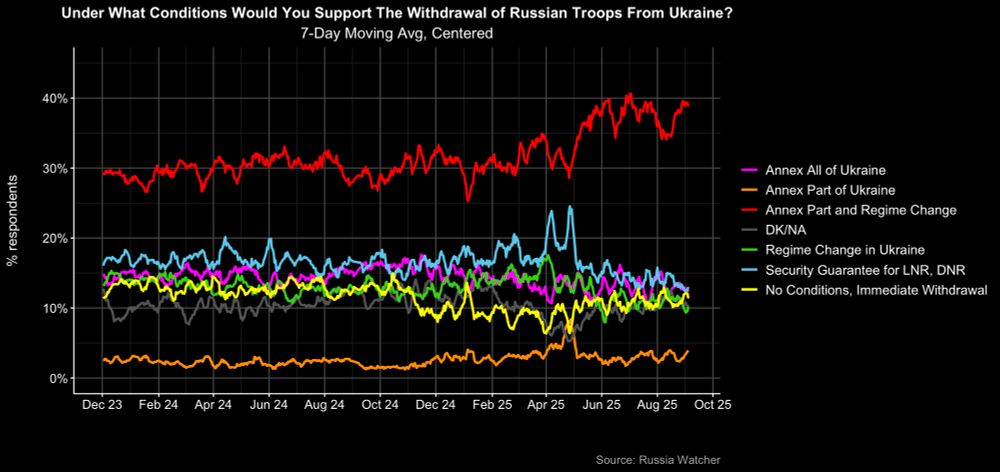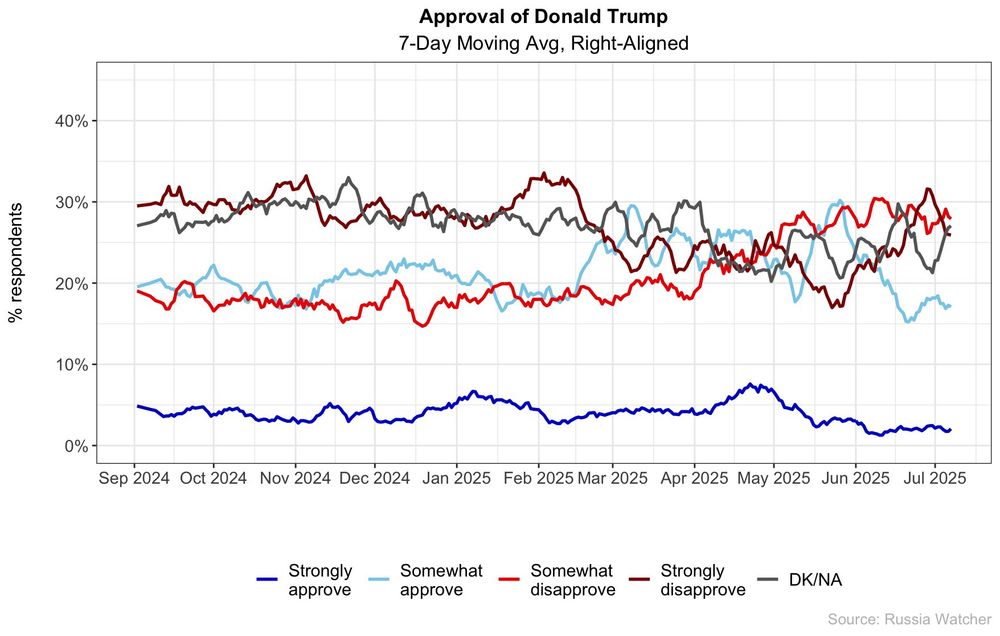Russia Watcher
@russiawatcher.bsky.social
39 followers
7 following
44 posts
The Russia Watcher is a daily tracking survey of Russian public opinion, run by political scientists from the Department of Politics at Princeton University. Learn more at http://russiawatcher.com.
Posts
Media
Videos
Starter Packs
Russia Watcher
@russiawatcher.bsky.social
· Aug 13
Russia Watcher
@russiawatcher.bsky.social
· Aug 13
Russia Watcher
@russiawatcher.bsky.social
· Jun 24
Russia Watcher
@russiawatcher.bsky.social
· May 23
Russia Watcher
@russiawatcher.bsky.social
· May 23
Russia Watcher
@russiawatcher.bsky.social
· May 23

















